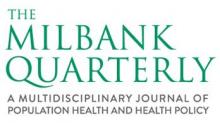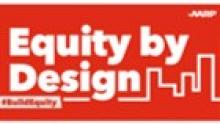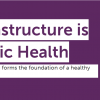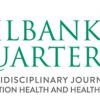0
Communications
Community:
Apr 18, 2024
Authored by:
Topics: Low-income
 Shared by Destiny Clark
Shared by Destiny Clark
Destiny Clark posted a
on Apr 18, 2024
0
Interactive
Community:
May 1, 2023
Play is not only beneficial but essential for people of all ages. Today, there is increasing interest in the benefits of not only play itself, but specifically people from younger and older generations playing together. The built environment in our communities plays a critical role in facilitating this intergenerational engagement and play. Approaches such as Intergenerational Contact Zones (ICZs) introduce strategies for promoting social inclusion and belonging, employing novel ways of planning and designing public spaces to create intergenerationally enriched environments that provide mutual benefits as well as counteract ageism and age-related stereotypes.
Authored by: Stephanie Firestone and Julia Glassman for AARP Equity by Design- Principles in Action
Topics: Community development, Dual-generation, Exercise, Health, Seniors, Youth
 Shared by Sandra Ware
Shared by Sandra Ware
Sandra Ware posted a
on Jun 8, 2023
Stephanie Firestone and Julia Glassman for AARP Equity by Design- Principles in Action
Play is not only beneficial but essential for people of all ages. Today, there is increasing interest in the benefits of not only play itself, but specifically people from younger and older generations playing together.
0
Interactive
Community:
Jun 1, 2023
Virtual
Authored by: Benton Institute for Broadband and Society
Topics: Broadband, Data sharing, Low-income
 Shared by Sandra Ware
Shared by Sandra Ware
Sandra Ware posted a
on Jun 1, 2023
Benton Institute for Broadband and Society
0
Research
Community:
May 25, 2023
We all want to live in a community where everyone has access to safe drinking water, green parks, and a reliable transit system. Strong infrastructure is key to ensuring communities have access to these necessities.
But this is not everyone’s reality today. For decades, barriers like residential segregation have fueled a lack of investment and inadequate and failing infrastructure in places where Black, Latino, and Indigenous people live today. These inequities create barriers to good health.
Investing in infrastructure—the building blocks of our communities—can transform communities so they are healthier and more equitable places to live.
Authored by: Robert Wood Johnson Foundation
Topics: Environmental Resiliency/Climate Change, Green, Health, Racial inequalities, Research, Transportation
 Shared by Sandra Ware
Shared by Sandra Ware
Sandra Ware posted a
on May 25, 2023
Robert Wood Johnson Foundation
We all want to live in a community where everyone has access to safe drinking water, green parks, and a reliable transit system. Strong infrastructure is key to ensuring communities have access to these necessities.
But this is not everyone’s reality today.
0
Communications
Community:
Apr 3, 2023
ASTHO comes to our health agencies and partners saddened by our country's recent mass shooting. We mourn the losses of life from firearm violence as our families, schools, and communities continue to be impacted. ASTHO supports you now more than ever. The epidemic of firearm-related injury and death in the United States has become a critical public health and safety concern that affects everyone.
Authored by: Caitlin Langhorne & Tanya Baker for ASTHO
Topics: Community development, Criminal justice, Health, Mental health, Research
 Shared by Sandra Ware
Shared by Sandra Ware
Sandra Ware posted a
on May 25, 2023
Caitlin Langhorne & Tanya Baker for ASTHO
ASTHO comes to our health agencies and partners saddened by our country's recent mass shooting. We mourn the losses of life from firearm violence as our families, schools, and communities continue to be impacted. ASTHO supports you now more than ever.
0
Interactive
Community:
May 24, 2023
Ever wondered what health centers are close to your public housing property? Check out this map to learn more.
Authored by:
Topics: Health, Housing
 Shared by Camille Anoll-Hunter
Shared by Camille Anoll-Hunter
Camille Anoll-Hunter posted a
on May 24, 2023
Ever wondered what health centers are close to your public housing property? Check out this map to learn more.
0
Interactive
Community:
May 2, 2023
Sesame Workshop and Quest Diagnostics as part of the Quest for Health Equity (Q4HE) initiative
are working together to create a bilingual (English and Spanish), multimedia program that helps all
families build healthy habits as a foundation for lifelong well-being. This effort addresses systemic
barriers to health care and helps improve access to the critical resources every family needs to stay
well. The latest materials showcase how there are many ways to support families in being healthy
in both mind and body. The new resources include two videos and a digital storybook.
Below you’ll find sample social media copy to share these resources with your community. We
thank you for your commitment and support as we continue in our mission to help all children grow
smarter, stronger, and kinder.
Authored by: Sesame Street in Communities and Quest Diagnostics
Topics: Child welfare, dual-generation initiative, Early childhood, Family engagement, Health
 Shared by Sandra Ware
Shared by Sandra Ware
Sandra Ware posted a
on May 2, 2023
Sesame Street in Communities and Quest Diagnostics
Sesame Workshop and Quest Diagnostics as part of the Quest for Health Equity (Q4HE) initiative
are working together to create a bilingual (English and Spanish), multimedia program that helps all
families build healthy habits as a foundation for lifelong well-being.
0
Research
Community:
Jan 27, 2023

Poor maternal and child health (MCH) outcomes and rates of chronic disease are persistently high in the United States and concentrated in rural and service-deprived areas where local health departments provide most care. In a new Milbank Quarterly study, Taryn A. G. Quinlan, Amelia L. Mitchell, and Glen P. Mays of the Colorado School of Public Health use national survey data from 630 local health departments to understand the relationship between social service collaboration and the provision of direct MCH services, such as the Special Supplemental Nutrition Program for Women, Infants, and Children (WIC).
The authors found local health departments that directly offer MCH services were more likely to collaborate with community partners that provide social services. Still, more than half of these departments were considered low collaborators.
“By working together to address MCH disparities, health and social service organizations could pool resources to provide needed services and identify innovative solutions to address disparities in their communities, thereby increasing system capacity to achieve equitable health outcomes,” the authors say.
Authored by: Taryn A.G. Quinlan, Amelia L. Mitchell, Glen P. Mays for The Milbank Quarterly
Topics: dual-generation initiative, Early childhood, Health, Low-income, Partnerships, Research
 Shared by Sandra Ware
Shared by Sandra Ware
Sandra Ware posted a
on Feb 7, 2023
Taryn A.G. Quinlan, Amelia L. Mitchell, Glen P. Mays for The Milbank Quarterly
Poor maternal and child health (MCH) outcomes and rates of chronic disease are persistently high in the United States and concentrated in rural and service-deprived areas where local health departments provide most care. In a new Milbank Quarterly study, Taryn A. G. Quinlan, Amelia L.
0
Interactive
Community:
Jan 24, 2023
Join us for an interactive course that explores practical, strength-based ways providers and other caring community members can help support children and families affected by conflict, crisis, or other traumatic experiences. This course can be taken as the first steps of support for newcomer families in your community.
Authored by: Sesame Street Communities
Topics: Early childhood, Family engagement, Healthy homes, Immigrants, Mental health, Youth
 Shared by Sandra Ware
Shared by Sandra Ware
Sandra Ware posted a
on Jan 24, 2023
Sesame Street Communities
Join us for an interactive course that explores practical, strength-based ways providers and other caring community members can help support children and families affected by conflict, crisis, or other traumatic experiences.
0
Communications
Community:
Nov 29, 2022
Social media tool kit to promote and advertise the December 6th Virtual Spotlight – LGBTQ+/SGL* – Affirming Housing for Older People event.
Authored by: Equity by Design- Principles in Action
Topics: Community development, Housing, Seniors
 Shared by Sandra Ware
Shared by Sandra Ware
Sandra Ware posted a
on Nov 29, 2022
Equity by Design- Principles in Action
Social media tool kit to promote and advertise the December 6th Virtual Spotlight – LGBTQ+/SGL* – Affirming Housing for Older People event.
0
Communications
Community:
Oct 14, 2022
Medical debt is a critical challenge to Americans’ financial stability and well-being. People with medical debt are more likely to forgo needed medical care, have difficulty meeting basic needs, and face an increased risk of bankruptcy.
Recent Urban research shows there are great disparities in who carries the most medical debt. Adults who live in communities where the majority of the population are people of color are more likely to have medical debt in collections reported on their credit reports. In particular, Black adults are more likely to have difficulty paying for family medical expenses. These inequities reinforce the racial wealth gap and contribute to disparities in health outcomes.
Authored by: Miranda Santillo, Breno Braga, Fredric Blavin, Anuj Gangopadhyaya for The Urban Institute
Topics: Asset building, Dual-eligibles, Health, Legislation & Policy, Low-income, Medicaid / Medicare, Racial inequalities
 Shared by Sandra Ware
Shared by Sandra Ware
Sandra Ware posted a
on Oct 27, 2022
Miranda Santillo, Breno Braga, Fredric Blavin, Anuj Gangopadhyaya for The Urban Institute
Medical debt is a critical challenge to Americans’ financial stability and well-being.
0
Communications
Community:
Aug 30, 2022
Join the Housing Is Working Group for webinars, member updates, and round table discussions! This resource provides the 2022-2023 Calendar of Events.
Authored by: Housing Is
Topics: CLPHA, Housing, Housing Is Working Group
 Shared by Camille Anoll-Hunter
Shared by Camille Anoll-Hunter
Camille Anoll-Hunter posted a
on Aug 30, 2022
Join the Housing Is Working Group for webinars, member updates, and round table discussions! This resource provides the 2022-2023 Calendar of Events.
0
Research
Community:
Jul 19, 2022
This ebook, authored by Next City, explores ways that creative placemaking can expand opportunities for low-income people living in disinvested communities.
The journalism Next City has produced for the series “For Whom, By Whom” chronicles how creative placemaking can expand opportunities for low-income people living in disinvested communities. These stories give lie to the false narrative that such neighborhoods are home to violence and deprivation instead of talent, imagination, and solutions. Here are communities that produce incredible feats despite being terminally under-resourced, and despite systemic neglect that has persisted for generations.
Authored by:
Topics: Community development, Mobility, Place-based, Racial inequalities, Research
 Shared by Malcolm Guy
Shared by Malcolm Guy
Malcolm Guy posted a
on Jul 19, 2022
This ebook, authored by Next City, explores ways that creative placemaking can expand opportunities for low-income people living in disinvested communities.
The journalism Next City has produced for the series “For Whom, By Whom” chronicles how creative placemaking can expand opportunities for lo
0
Interactive
Community:
Jun 29, 2022
In 2020 we launched a dedicated effort to learn more about legal issues surrounding unaccompanied minors experiencing homelessness. This project was intended to guide both organizations’ ongoing work and advocacy and develop resources to help the field better prevent and end homelessness among minors.
This toolkit includes:
• Key issues and challenges for minors experiencing homelessness;
• Strategies and lessons learned from advocacy for state minor consent to services laws (including questions to consider);
• Legal issues and considerations relevant to host homes for minors;
• Working towards equity while serving minors;
• Child welfare and youth homelessness; and
• Additional legal and policy issues.
Authored by: National Network for Youth
Topics: Advocacy, Child welfare, Community development, Education, Foster care, Homelessness, Housing, Legislation & Policy, Racial inequalities, Research, Supportive housing, Sustainability, Youth
 Shared by Karina George
Shared by Karina George
Karina George posted a
on Jun 29, 2022
National Network for Youth
In 2020 we launched a dedicated effort to learn more about legal issues surrounding unaccompanied minors experiencing homelessness.
0
Interactive
Community:
Aug 3, 2021
Use this toolkit to assist in pursuing partnerships with school districts to provide afterschool and summer programs to support student recovery. Districts must spend a minimum of 20% of their funds on learning loss, which explicitly calls out summer and afterschool programs as an allowable use.
Authored by: Afterschool Alliance
Topics: Education, Funding, Out-of-school time
 Shared by Kirsten Greenwell
Shared by Kirsten Greenwell
Kirsten Greenwell posted a
on Aug 3, 2021
Use this toolkit to assist in pursuing partnerships with school districts to provide afterschool and summer programs to support student recovery.
0
Communications
Community:
Jul 30, 2021
A new D.C. Federal Nutrition Programs Toolkit is designed to help community-based organizations, social service and healthcare providers, District agencies, and community members connect low-income households with federal nutrition programs. Beverley Wheeler, director of D.C. Hunger Solutions, told The DC Line, “with this toolkit, our community leaders can play a key role in ensuring children, young adults, adults, and older adults can connect with the right providers to help gain access to the nutrition they need for their health and well-being.”
Authored by: D.C. Hunger Solutions
Topics: East Coast, Food insecurity
 Shared by Kirsten Greenwell
Shared by Kirsten Greenwell
Kirsten Greenwell posted a
on Jul 30, 2021
A new D.C. Federal Nutrition Programs Toolkit is designed to help community-based organizations, social service and healthcare providers, District agencies, and community members connect low-income households with federal nutrition programs. Beverley Wheeler, director of D.C.
0
Communications
Community: CLPHA COVID-19 Coordination
Mar 23, 2020
The National Asian Pacific Center on Aging has launched a an automated COVID-19 in-language helpline and website for older adults and their caregivers.The helpline offers information on prevention, symptoms, and planning in 8 different languages. Each language will have a dedicated 1-800 line so that older adults who are limited English-proficient can immediately learn about the COVID-19 without having to navigate through difficult English prompts.
Authored by: National Asian Pacific Center on Asian
Topics: Communications
 Shared by Kirsten Greenwell
Shared by Kirsten Greenwell
Kirsten Greenwell posted a
on Mar 23, 2020
National Asian Pacific Center on Asian
The National Asian Pacific Center on Aging has launched a an automated COVID-19 in-language helpline and website for older adults and their caregivers.The helpline offers information on prevention, symptoms, and planning in 8 different languages.
0
Communications
Community: CLPHA COVID-19 Coordination
Mar 23, 2020
Special edition of CLPHA newsletter detailing the organization's efforts in response to COVID-19.
Authored by: CLPHA
Topics: Advocacy, CLPHA, Communications, Health, Seniors
 Shared by Steve Lucas
Shared by Steve Lucas
Steve Lucas posted a
on Mar 23, 2020
Special edition of CLPHA newsletter detailing the organization's efforts in response to COVID-19.
0
Communications
Community: CLPHA COVID-19 Coordination
Mar 22, 2020
From CDC: "Residents in retirement communities and ILF are considered to be at higher risk of severe COVID-19 outcomes because of older age and because they may have underlying health conditions, such as chronic heart disease, diabetes, or lung disease. They also may be at higher risk of getting and spreading the virus because of community characteristics, such as frequent social activities, and shared dining facilities and communal spaces. Guidance specific to retirement and independent living communities can help the residents, and those who help serve them, slow the spread of the virus and prevent serious illness."
The CDC guidance includes a checklist for owners and building managers to help protect residents from the spread of COVID-19.
Authored by: Centers for Disease Control and Prevention (CDC)
Topics: Health, Seniors
 Shared by Steve Lucas
Shared by Steve Lucas
Steve Lucas posted a
on Mar 22, 2020
Centers for Disease Control and Prevention (CDC)
From CDC: "Residents in retirement communities and ILF are considered to be at higher risk of severe COVID-19 outcomes because of older age and because they may have underlying health conditions, such as chronic heart disease, diabetes, or lung disease.
0
Communications
Community: CLPHA COVID-19 Coordination
Mar 17, 2020
Offers community-specific COVID-19 mitigation plans and guidance on how to prepare and take action for COVID-19 at home and at workplaces, schools, childcare programs, colleges, universities, large community events/mass gatherings, homeless shelters, and other locations.
Authored by: CDC
Topics: Communications
 Shared by Kirsten Greenwell
Shared by Kirsten Greenwell
Kirsten Greenwell posted a
on Mar 17, 2020
Offers community-specific COVID-19 mitigation plans and guidance on how to prepare and take action for COVID-19 at home and at workplaces, schools, childcare programs, colleges, universities, large community events/mass gatherings, homeless shelters, and other locations.
0
Communications
Community: CLPHA COVID-19 Coordination
Mar 17, 2020
Print resources from the CDC about coronavirus symptoms, prevention, and treatment to distribute and post in your communities.
Authored by: CDC
Topics: Communications
 Shared by Kirsten Greenwell
Shared by Kirsten Greenwell
Kirsten Greenwell posted a
on Mar 17, 2020
Print resources from the CDC about coronavirus symptoms, prevention, and treatment to distribute and post in your communities.
1
Communications
Community: CLPHA COVID-19 Coordination
Mar 16, 2020
The CDC's landing page for official COVID-19 guidance to communities and individuals.
Authored by: CDC
Topics: Health
 Shared by Steve Lucas
Shared by Steve Lucas
Steve Lucas posted a
on Mar 16, 2020
The CDC's landing page for official COVID-19 guidance to communities and individuals.
0
Communications
Community: CLPHA COVID-19 Coordination
Mar 16, 2020
CLPHA is continually updating a central COVID-19 landing page that includes the latest CDC guidance, member-generated resources, and information from CLPHA member calls related to COVID-19 (e.g. call notes, insights from speakers). We encourage you to share your resources with us and fellow members in this online community and/or by emailing them to the CLPHA team at clpha@clpha.org.
Authored by: CLPHA
Topics: Health
 Shared by Steve Lucas
Shared by Steve Lucas
Steve Lucas posted a
on Mar 16, 2020
CLPHA is continually updating a central COVID-19 landing page that includes the latest CDC guidance, member-generated resources, and information from CLPHA member calls related to COVID-19 (e.g. call notes, insights from speakers).
0
Research
Community:
Aug 5, 2019
CLPHA developed a general data sharing template that public housing authorities (PHAs) and their health partners can customize to suit their data sharing and collaboration needs. Please feel free to comment to share any uses/modifications your organization made to implement into a partnership.
Authored by:
Topics: Affordable Care Act, CLPHA, Community development, Cost effectiveness, Data sharing, Dental, Depression, Dual-eligibles, Funding, Health, Healthy homes, Legislation & Policy, Low-income, Medicaid / Medicare, Mental health, Metrics, MTW, Nutrition, Obesity, Partnerships, Place-based, Preventative care, Racial inequalities, Research, SAMHSA, Smoke-free, Stability, Substance abuse, Supportive housing, Sustainability, TA
 Shared by Steve Lucas
Shared by Steve Lucas
Steve Lucas posted a
on Aug 5, 2019
Disclaimer: This template is provided for informational purposes only and not for the purpose of providing legal advice. You should contact your attorney to obtain advice with respect to any particular issue or question. Use of this template, including its exhibits and attachments, does not create a relationship or any responsibilities between CLPHA and the user.
CLPHA developed a general data sharing template that public housing authorities (PHAs) and their health partners can customize to suit their data sharing and collaboration needs. Please feel free to comment to share any uses/modifications your organization made to implement into a partnership.
0
Research
Community:
Mar 25, 2019
The articles below are part of a special collection commemorating 25 years of the Health Care System Research Network’s (HCSRN's) rigorous research to improve health outcomes and health systems’ performance by leveraging electronic health data. This new collection highlights, among other things, advances in personalized cancer care, the optimal use of AI in health care, and the evolution of common data models, featuring work from Kaiser Permanente, Intermountain Healthcare and others.
Authored by: The Journal for Electronic Health Data and Methods
Topics: Data sharing, Health, Partnerships, Research
 Shared by Housing Is
Shared by Housing Is
Housing Is posted a
on Jun 13, 2019
The Journal for Electronic Health Data and Methods
The articles below are part of a special collection commemorating 25 years of the Health Care System Research Network’s (HCSRN's) rigorous research to improve health outcomes and health systems’ performance by leveraging electronic health data.
 Shared by Destiny Clark
on Apr 18, 2024
Shared by Destiny Clark
on Apr 18, 2024

 Shared by Sandra Ware
on Jun 8, 2023
Shared by Sandra Ware
on Jun 8, 2023


 Shared by Sandra Ware
on Jun 1, 2023
Shared by Sandra Ware
on Jun 1, 2023


 Shared by Sandra Ware
on May 25, 2023
Shared by Sandra Ware
on May 25, 2023


 Shared by Sandra Ware
on May 25, 2023
Shared by Sandra Ware
on May 25, 2023

 Shared by Camille Anoll-Hunter
on May 24, 2023
Shared by Camille Anoll-Hunter
on May 24, 2023

 Shared by Sandra Ware
on May 2, 2023
Shared by Sandra Ware
on May 2, 2023


 Shared by Sandra Ware
on Feb 7, 2023
Shared by Sandra Ware
on Feb 7, 2023


 Shared by Sandra Ware
on Jan 24, 2023
Shared by Sandra Ware
on Jan 24, 2023

 Shared by Sandra Ware
on Nov 29, 2022
Shared by Sandra Ware
on Nov 29, 2022
 Shared by Sandra Ware
on Oct 27, 2022
Shared by Sandra Ware
on Oct 27, 2022
 Shared by Camille Anoll-Hunter
on Aug 30, 2022
Shared by Camille Anoll-Hunter
on Aug 30, 2022
 Shared by Malcolm Guy
on Jul 19, 2022
Shared by Malcolm Guy
on Jul 19, 2022
 Shared by Karina George
on Jun 29, 2022
Shared by Karina George
on Jun 29, 2022
 Shared by Kirsten Greenwell
on Aug 3, 2021
Shared by Kirsten Greenwell
on Aug 3, 2021
 Shared by Kirsten Greenwell
on Jul 30, 2021
Shared by Kirsten Greenwell
on Jul 30, 2021
 Shared by Kirsten Greenwell
on Mar 23, 2020
Shared by Kirsten Greenwell
on Mar 23, 2020
 Shared by Steve Lucas
on Mar 23, 2020
Shared by Steve Lucas
on Mar 23, 2020
 Shared by Steve Lucas
on Mar 22, 2020
Shared by Steve Lucas
on Mar 22, 2020
 Shared by Kirsten Greenwell
on Mar 17, 2020
Shared by Kirsten Greenwell
on Mar 17, 2020
 Shared by Kirsten Greenwell
on Mar 17, 2020
Shared by Kirsten Greenwell
on Mar 17, 2020
 Shared by Steve Lucas
on Mar 16, 2020
Shared by Steve Lucas
on Mar 16, 2020
 Shared by Steve Lucas
on Mar 16, 2020
Shared by Steve Lucas
on Mar 16, 2020
 Shared by Steve Lucas
on Aug 5, 2019
Shared by Steve Lucas
on Aug 5, 2019
 Shared by Housing Is
on Jun 13, 2019
Shared by Housing Is
on Jun 13, 2019



